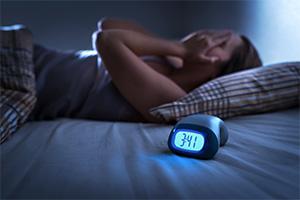
National Sleep Awareness Week is coming up, which means that it’s a good time to think about the important role that getting enough shuteye plays in our lives.
For dentists, this is a good time to talk about one sleep disorder that often overlaps with dentistry: sleep apnea. If you want to know more about this condition, or how you can deal with it, here’s a guide that may be able to help you.
How Do I Know if I Have Sleep Apnea?
Obstructive sleep apnea is a condition where certain structures in the mouth block the airways during sleep, stopping your breathing momentarily. This usually causes the body to force itself awake so that it can breathe normally again.
People with sleep apnea usually report being tired during the day, often regardless of how long they sleep. Snoring is often associated with sleep apnea, though this symptom tends to be more prominent in men than women. That said, the condition itself is also most common in men over the age of 50.
If you think you may have sleep apnea, you should reach out to a sleep dentist; they’ll be able to screen you for the condition and direct you to a sleep doctor if it seems like you could be at risk.
How Could Sleep Apnea be Affecting my Life?
When you wake up during an apnea attack, your body goes into a panic that, among other things, causes a rapid spike in your blood pressure. Sleep apnea patients can have this happen dozens of times a night, which can start to affect their blood pressure even while awake. This increases their overall chances of heart attack and stroke.
Chronic sleeplessness also makes it difficult to regulate your mood, so sleep apnea patients tend to suffer from anxiety and depression at a higher rate than other people. This symptom is slightly more likely in women than in men.
What Can I Do About Sleep Apnea?
If you have sleep apnea, a sleep doctor may be able to furnish you with a CPAP machine. This is a mask strapped to the face that supplies positive air pressure while sleeping, which tends to force open the obstructions in the mouth.
If a sleep doctor diagnoses you, a sleep dentist can also craft you an oral appliance that can change the position of your jaw. This may help you to open your airways a little bit more comfortably than a bulky CPAP machine.
Whichever method you choose, the value of a good night’s sleep can’t be overstated. If you think you may have sleep apnea, you should contact a professional so that you can get the rest you deserve.
About the Author
Dr. Dean Hutto is a dentist who feels proud to be able to serve his community alongside his incredible dental team, and to put his skills to work for his friends and neighbors. Dr. Hutto graduated from the University of Texas Dental School in Houston, and since then has received a massive amount of continuing education from some of the most renowned dentists in the country.
If you have any questions about how your dentist can help you get a good night’s sleep, he can be reached at his website or by phone at (281) 422-8249.
